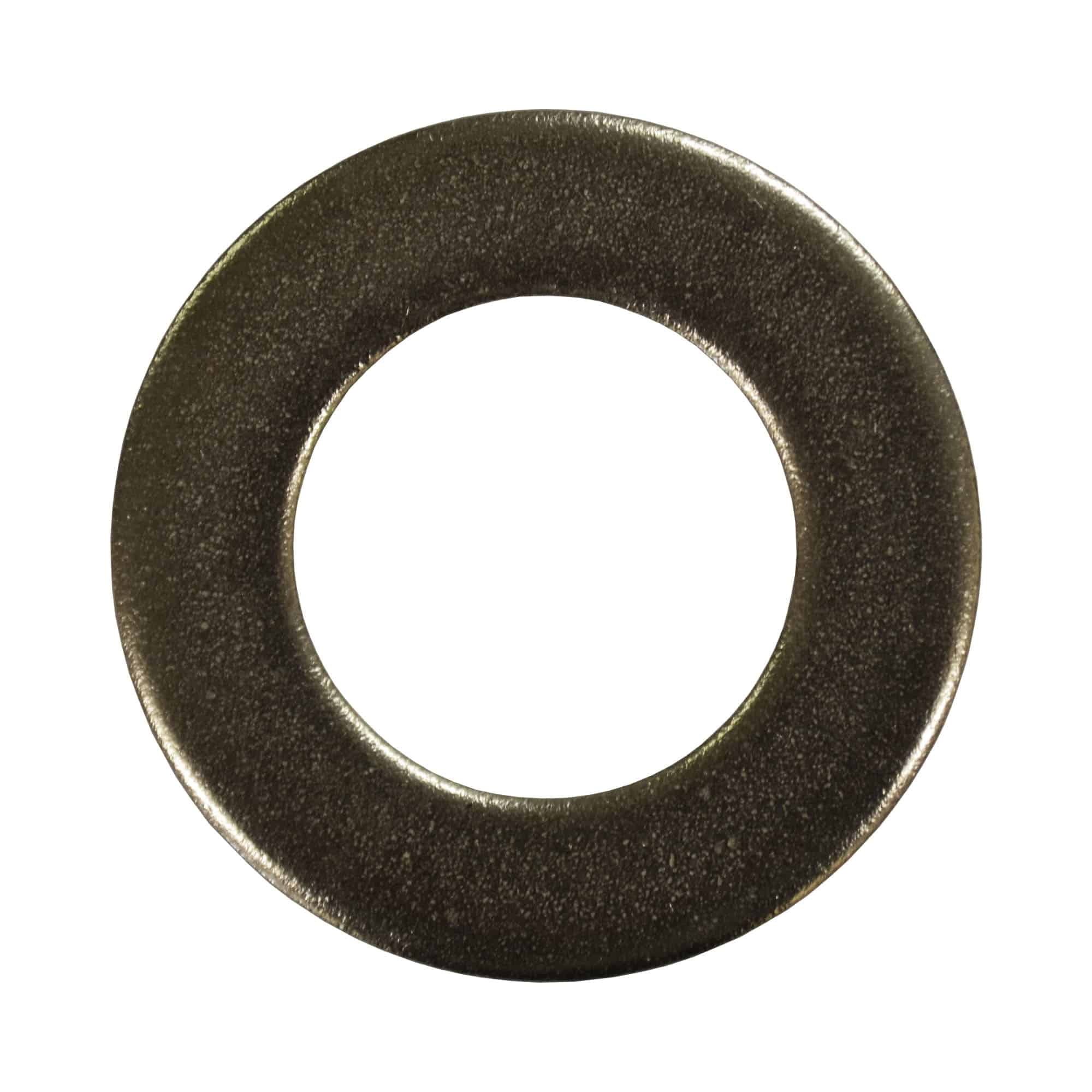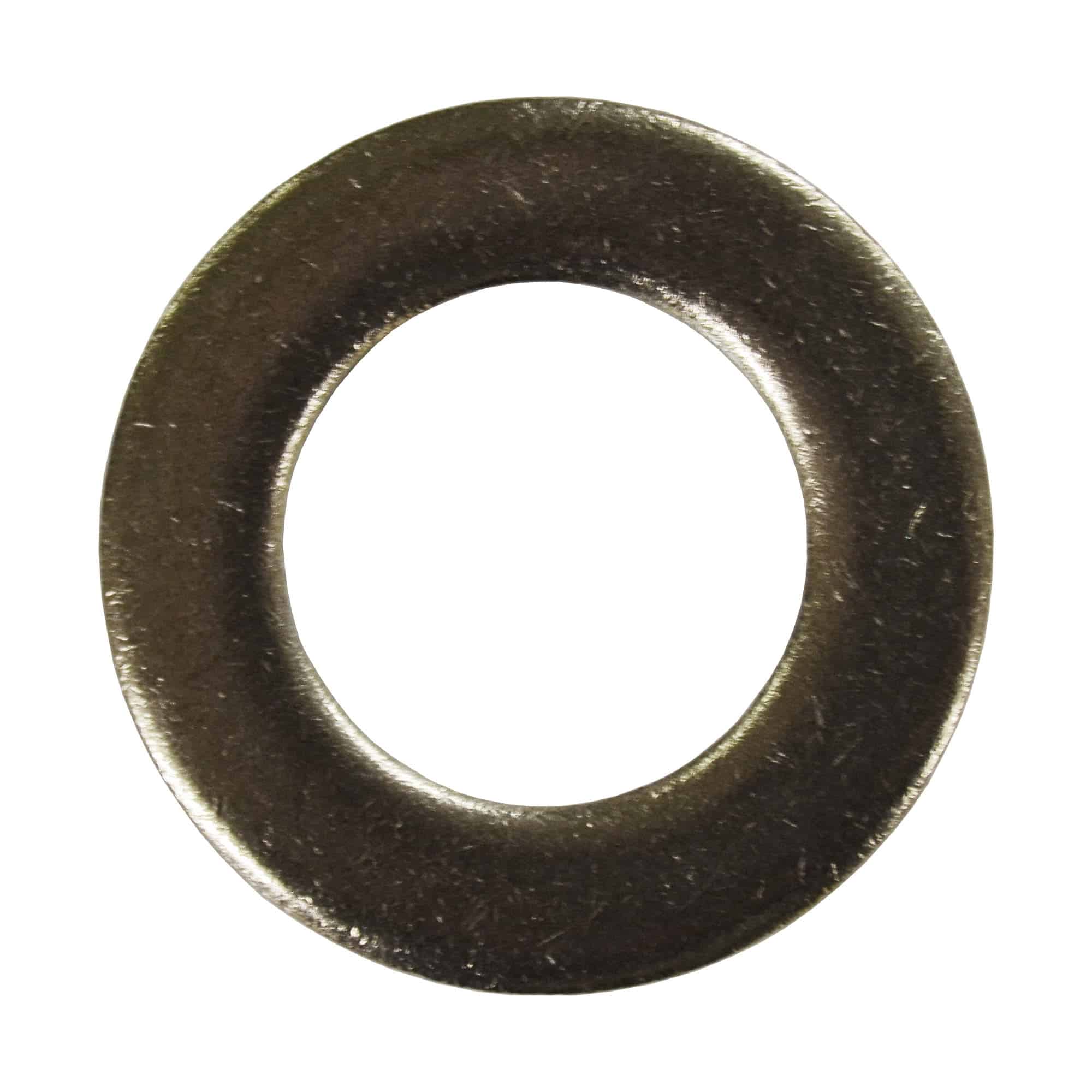- Massive Range
- FREE UK Delivery
- Rapid Dispatch
- Massive Range
- FREE UK Delivery
- Rapid Dispatch
- Massive Range
- FREE UK Delivery
- Rapid Dispatch
Menu
£1.09 – £2.69 inc VAT

Are you in search of a high-quality washer that ensures long-lasting durability and resistance against corrosion? Look no further than the M6 (6.4mm) A2 Stainless Steel Form A Plain Washer by Speciality Metals. Made with 304 Grade stainless steel, this plain washer is not only versatile and low maintenance, but also boasts exceptional hygiene properties. With its secure fit and anti-corrosion design, you can trust this washer to hold up in even the toughest of environments. Say goodbye to constant maintenance and replacements and hello to a reliable solution with the M6 (6.4mm) A2 Stainless Steel Form A Plain Washer.
Top quality form A flat stainless steel plain washer supplied straight from Warrington, UK. These washers are for metric bolts and screws.
For those in the market for a reliable plain washer, the M6 (6.4mm) A2 Stainless Steel Form A Plain Washer by Speciality Metals is worth considering. This washer is made from durable and versatile stainless steel 304, ensuring it can withstand a variety of conditions. Additionally, this washer is highly hygienic, making it a great choice for environments where cleanliness is essential. In addition to being low maintenance and corrosion-resistant, it also offers peace of mind due to its secure design. Our plain washers can withstand tough conditions and remain functional and effective under tough conditions.
Form A stainless steel flat washers are most used around the world.
Key product details:
Speciality Metals are the best suppliers for you because:
Speciality Metals is a trusted UK based distributor of fasteners, sheet metal, flat bar and round tube. We specialise in rapid delivery to any location around the country. Our team of experienced, friendly staff are at hand at all times to process your order.
The acid resistance of Form A washers largely depends on the material from which they are made and the specific type of acid to which they will be exposed. For example, stainless steel Form A washers, particularly those made from 316-grade stainless steel, offer better resistance to many types of acids compared to washers made from carbon steel or aluminum. However, even high-grade stainless steel is not universally acid-resistant against all types of acids and concentrations. Factors like temperature, concentration of the acid and duration of exposure can all impact how well the washers hold up. It’s also crucial to consider the washer’s compatibility with other materials in the assembly, as the potential for galvanic corrosion or other reactions could affect its integrity. For applications that involve exposure to acids, it’s essential to consult with material scientists or corrosion engineers to select the appropriate washer material, and you may need to consider special coatings or treatments to enhance acid resistance. Always adhere to industry standards and guidelines relevant to your specific application.
Stainless steel washers can be used in underground applications, but several factors should be considered to ensure their suitability and longevity. Underground conditions can vary widely, from dry, rocky soil to wet, acidic environments. Stainless steel offers good corrosion resistance, but even high-quality grades like 316 are not impervious to all types of corrosive agents found underground, such as chlorides, sulfates and other minerals.
Soil Chemistry: The type of soil can greatly affect the rate of corrosion. Acidic soils with high moisture content are generally more corrosive.
Electrolytic Corrosion: If the washer is in contact with dissimilar metals underground, it may be susceptible to galvanic corrosion.
Water Content: High moisture levels can accelerate corrosion, particularly if the water has a high mineral or salt content.
Material Grade: Higher grades of stainless steel like 316, which contain molybdenum, offer better corrosion resistance compared to lower grades like 304.
Coatings and Treatments: Anti-corrosion coatings or treatments may extend the lifespan of stainless steel washers in underground applications.
Environmental Regulations: Make sure to adhere to any environmental guidelines or regulations that may apply, especially if the application involves contact with potable water or sensitive ecosystems.
Inspections and Maintenance: Periodic inspections are advisable to check for signs of corrosion or other types of wear, particularly for critical applications where washer failure could be catastrophic.
Engineering Consultation: For critical or specialised applications, consult with a corrosion engineer or materials scientist to ensure that the chosen washer material is appropriate for the specific conditions it will encounter.
Anodising is a process primarily used on aluminum, titanium and certain other non-ferrous metals to increase corrosion resistance, surface hardness and to provide a decorative finish. It is not applicable to steel, including steel Form A flat washers. The anodising process involves using an electrolytic solution to form a stable oxide layer on the surface of a metal, and steel’s composition and electrochemical properties make it unsuitable for this type of treatment. If you are looking to improve the corrosion resistance or appearance of steel washers, other finishing techniques such as zinc plating, galvanising, or powder coating are more appropriate. These methods deposit a protective layer on the steel surface, thereby enhancing its corrosion resistance and aesthetic appeal. Therefore, while you can’t anodise steel Form A flat washers, there are alternative treatments available to achieve some of the same objectives.
Soapy Water: Mild dish soap and warm water can effectively remove grease and light stains. A soft brush or cloth can help with stubborn grime.
Rinse: After cleaning with soapy water, it’s essential to rinse the washers thoroughly to remove any soap residue.
Acidic Solutions: For more challenging stains or tarnish, a weak solution of vinegar or citric acid can be effective. However, it’s important to test a small area first and to rinse thoroughly afterward.
Degreasers: Industrial-grade degreasers can be used for more robust cleaning, particularly if the washers have been exposed to heavy oils or greases.
Polishing: Some people use a stainless steel cleaner to polish the washers after cleaning, but this is usually not necessary for industrial applications.
Avoid Abrasives: Do not use abrasive materials like steel wool or abrasive cleaners as they can scratch the surface and potentially compromise the corrosion resistance.
Drying: It’s a good idea to dry the washers thoroughly after washing to prevent water spots or minor surface corrosion.
Inspection: After cleaning, inspect the washers for any signs of wear or damage.
Consult Manufacturer: For specialised applications or for washers made from unique alloys, it may be best to consult the manufacturer for specific cleaning recommendations.
Check out our blogs discussing Stainless Steel Form A Washers. It will prove a useful read to help you to make an informed decision on which material would work best for you.
We are also very proud of our ever expanding YouTube channel.
Our goal for our blogs, videos and help guides is to answer as many questions as possible to help to explain the possibilities of mesh to our customers. Contact us today if you have any questions at all. We are always really keen to help in any way that we can.
We are also very proud of our highly popular eBay store, check us out there too.
Thank you for checking out our product.
£2.55 – £11.95 inc VAT
£2.35 – £7.95 inc VAT

£2.55 – £11.95 inc VAT

£2.35 – £7.95 inc VAT
Speciality Metals
Unit 1, Farrell Street, Warrington,
Cheshire, WA1 2WW, United Kingdom
Quick Links
Payment Options
